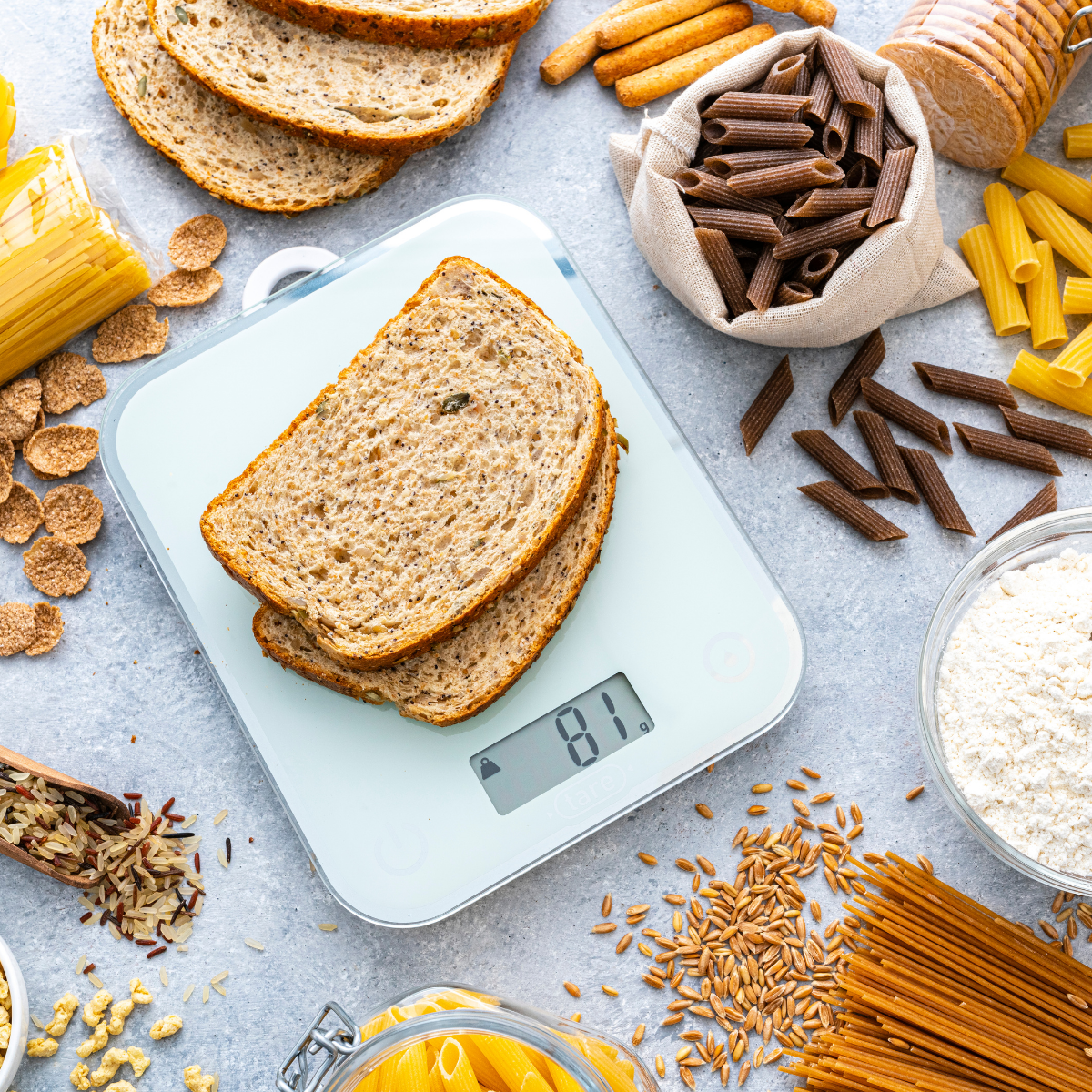Food Scales Aren’t About Obsession - They’re About Accuracy
A common question I get with macro coaching is, “Do I really have to weigh my food?”
I get it. Measuring cups feel easier. They’ve been in your kitchen forever, and pulling out a food scale can seem like extra work. But when it comes to getting results and actually understanding what you’re eating, volume measurements can throw you way off.
Let me show you why this small switch makes such a big difference.
A Cup Isn’t the Same for Everyone
Let’s use rice as an example.
Bowl A: 1 cup of cooked rice can be anywhere from 130 to 200 grams depending on how it’s packed.
Bowl B: 150 grams of cooked rice is always 150 grams.
That’s a 100+ calorie difference just because one person packed their cup tighter than another.
So two people can both say they had “1 cup of rice,” but one might be eating almost double the calories without realizing it. The same thing happens with peanut butter, oats, cereal, pasta, pretty much everything.
It’s About Awareness, Not Perfection
Weighing your food isn’t about being obsessive. It’s about knowing what’s actually going on your plate.
When you start weighing things out, you learn fast.
You see how small 30 grams of peanut butter really is.
You realize your “tablespoon” of olive oil might be closer to two.
You start to recognize what your meals actually look like in real numbers.
Over time, you won’t need the scale as much because you’ll know your portions just by looking at them. But to build that awareness, you have to measure accurately first.
The Numbers Add Up
If your goal is fat loss or body recomposition, even small tracking errors can add up. An extra scoop here and there might not seem like much, but over the course of a week it can make the difference between staying consistent or spinning your wheels.
A scale takes the guessing out of it. You know exactly what you’re eating, which makes your tracking app far more useful and your progress easier to monitor.
It’s Actually Easier Than Measuring
Once you get used to it, weighing your food is quicker than digging through drawers for cups and spoons.
You can put your plate on the scale, zero it, add your protein, zero it again, add your carbs, and so on. It’s cleaner, faster, and you only have one thing to wash when you’re done.
If you’re logging your meals in Cronometer or MyFitnessPal, weighing makes your entries more accurate, which helps you get better results with less frustration.
Bottom Line
Using a food scale isn’t about being strict. It’s about being smart.
When you learn what your portions actually look like, you build confidence in how to eat for your goals. You’ll be able to eyeball things later because you spent time understanding them now.
What’s Next
If you’ve worked with me before, you already know why I encourage weighing food, it’s not about perfection, it’s about progress you can actually see.
And if you missed the last challenge, the next StrongHER Challenge kicks off in the New Year. Join the waitlist here to be first to know when doors open.
In the meantime, grab my free guide, Strong & Balanced: A Woman’s Guide to Macros, below and learn how to eat for your goals without cutting out the foods you love.

